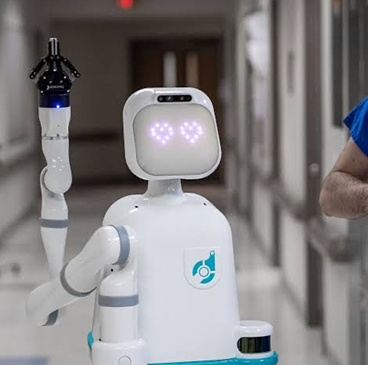ICUs are fast-paced, high-stakes environments where doctors and nurses balance vast amounts of patient data with split-second decisions.
How Moxi is Helping Doctors and Nurses in ICU Care
Intensive Care Units (ICUs) are some of the most demanding environments in healthcare. Patients arrive in critical condition, often requiring constant monitoring, rapid interventions, and highly coordinated teamwork. Doctors and nurses face the dual challenge of managing vast streams of physiological data while making life-saving decisions under immense pressure.
This is where Moxi, Medlenna’s intelligent ICU assistant, is making a difference.
Real-Time Support for Clinicians
Every ICU patient generates thousands of data points each hour: ventilator settings, oxygen saturation, blood pressure, ECG rhythms, lab results, and more. Traditionally, it falls on clinicians to interpret these signals in real time, balancing intuition with experience. Maxi lightens that burden. By continuously analyzing multimodal patient data, Maxi highlights emerging risks and alerts care teams before conditions deteriorate.
Reducing Burnout, Enhancing Focus
ICU teams often manage multiple critically ill patients simultaneously. The constant vigilance required can lead to fatigue and burnout. Maxi doesn’t replace clinical judgment, but it reduces cognitive load by filtering noise, prioritizing the most urgent signals, and presenting insights clearly. This gives nurses and doctors more space to focus on what they do best: caring for patients and supporting families.
Predicting Deterioration Before It Happens
One of Maxi’s most valuable contributions is early warning. By learning from patterns across vital signs, lab values, and historical patient outcomes, Maxi can predict the likelihood of events such as sepsis, cardiac arrest, or respiratory failure. Nurses and physicians receive timely alerts, allowing them to act before a crisis unfolds.
Maxi isn’t replacing doctors or nurses — it’s strengthening them. By combining adaptive AI with frontline expertise, it helps ICU teams deliver safer, faster, and more precise care when it matters most.

